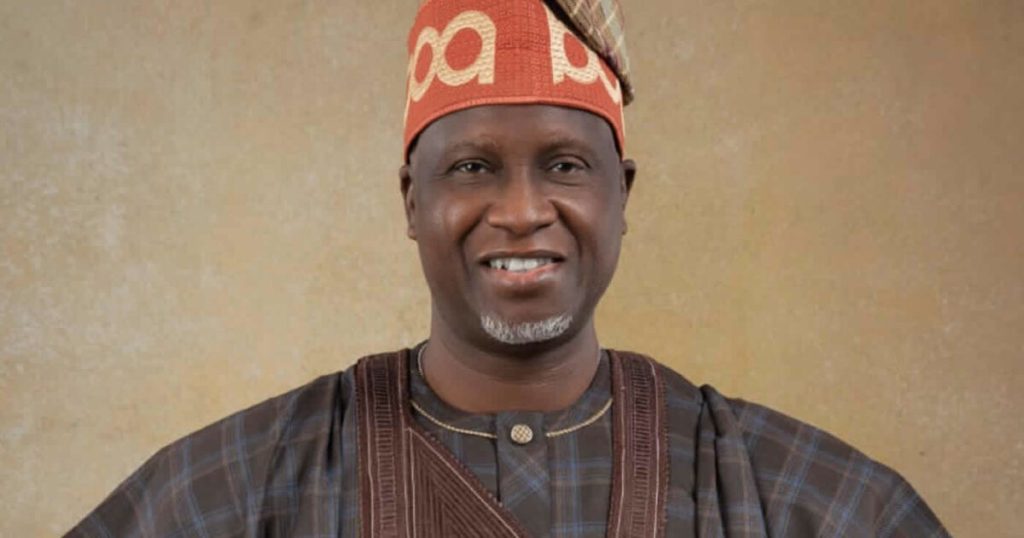The APC’s Prospects in Upcoming Elections and Addressing Internal Divisions
Benedict Alabi, former deputy governor of Osun State, expressed optimism about the All Progressives Congress (APC)’s chances in the forthcoming elections, despite acknowledging the economic hardships faced by Nigerians due to the federal government’s reforms. He argued that these hardships are temporary sacrifices necessary for long-term economic growth and development. Alabi highlighted positive impacts already being seen, particularly in the agricultural sector, where farmers are experiencing increased profits from crops like cocoa, cassava, and plantain. He also cited the government’s education initiatives, like NELFUND, and the increased minimum wage as measures that are improving the financial well-being of families. Alabi believes that these positive changes will resonate with voters, even in opposition states, leading to increased support for the APC. He confidently predicted that the APC will secure victories in most states in the coming elections, citing the perceived failures of opposition governments to effectively utilize increased federal allocations.
Regarding Osun State specifically, Alabi criticized the current administration for its alleged lack of progress despite receiving substantial federal funds. He contrasted this with his own administration’s tenure, which faced financial constraints due to events like #EndSARS and the COVID-19 pandemic. Alabi maintained that the Tinubu administration’s focus on agriculture, a key sector of the Nigerian economy, would further bolster the APC’s standing. He pointed to improvements in foreign exchange and trade, coupled with increased state allocations following fuel subsidy removal, as evidence of positive economic trends. Alabi argued that the onus is on state governors to ensure these benefits translate into tangible improvements for the people.
Addressing the recently revised education curriculum, Alabi expressed confidence in its successful implementation, citing the availability of human resources within schools. He emphasized that the curriculum’s focus on modern skills and international competitiveness aligns with the needs of the present time and will equip students for both local and global employment opportunities. Alabi also addressed concerns about voter registration in Osun State, attributing the high numbers to the state’s high literacy rate and the upcoming governorship election. He dismissed allegations of manipulation, suggesting they stem from the fear of electoral defeat by certain parties.
Alabi identified the primary challenge during his tenure as deputy governor as the scarcity of funds, exacerbated by national crises like #EndSARS and the COVID-19 pandemic. This, he claimed, limited their administration’s ability to fully implement its development agenda. He also discussed the internal divisions within the Osun APC during his time in office, particularly the split between the IleriOluwa and TOP factions. While acknowledging these past disagreements, Alabi emphasized the party’s unity and his commitment to the overall success of the APC. He highlighted the recent influx of PDP members into the APC in Osun as a positive sign of the party’s strength and stability, while simultaneously interpreting it as a reflection of dissatisfaction with the current state government.
Alabi addressed rumors of a rift between himself and his former principal, Gboyega Oyetola, now the Minister of Marine and Blue Economy, dismissing them as politically motivated insinuations. He affirmed his continued respect for Oyetola and emphasized their ongoing consultations. Regarding his own gubernatorial ambitions, Alabi stressed that the decision rests with the party leadership, prioritizing the selection of a winning candidate over individual aspirations. He acknowledged Oyetola’s influence in the party and emphasized the importance of collective decision-making in choosing the right candidate for the state.
On the issue of zoning the governorship ticket, Alabi affirmed the competence and popularity of aspirants across all senatorial districts in Osun State. He noted that while zoning can promote equitable representation, it should not supersede competence and popularity in candidate selection. Alabi pointed out that the current governor hails from Osun West, suggesting that fielding an APC candidate from the same district could split the vote, potentially benefiting the APC.
Finally, Alabi reiterated his commitment to serving the people of Osun State, emphasizing his desire to continue the unfinished projects of his previous administration, particularly in infrastructure and education. He expressed concern over the current administration’s alleged neglect of these sectors, citing issues like teacher layoffs and shortages of healthcare professionals. Alabi framed his political aspirations as a call to service, driven by a desire to improve the lives of Osun State residents, regardless of his personal role in the process. He affirmed that he would support the party’s chosen candidate and work towards a better future for the state, whether or not he is on the ballot.














